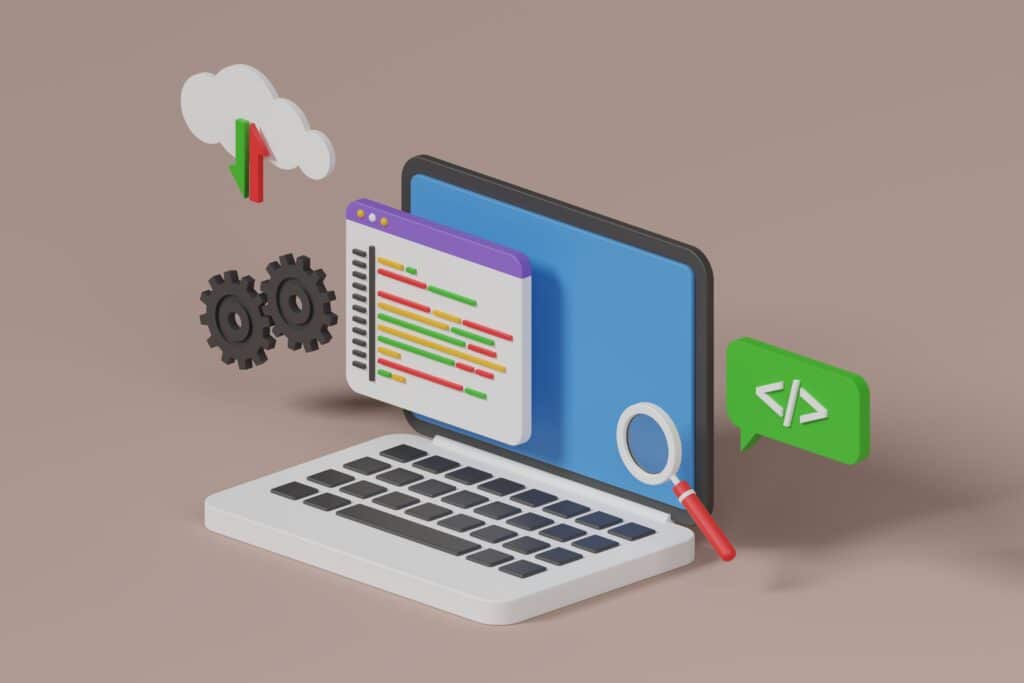Poised on the cutting edge of business technology, pos QuickBooks integration offers unparalleled benefits such as real-time data syncing, simplified financial management and inventory tracking like never before. This extraordinary blend optimizes both time and resources, leading to potentially increased profit margins for businesses across all sectors. So buckle up as we dive deep into exploring the marvels of pos QuickBooks integration in this insightful article.
Understanding POS QuickBooks Integration
Dive deep into the realm of streamlined business operations with POS QuickBooks Integration. This ingenious pairing, combining high-powered accounting software with a top-notch point-of-sale system, is revolutionizing the way businesses handle transactions and manage their finances. Picture this: A touch-free, seamless data transition from your sales department to accounting. It’s not science fiction – it’s the reality delivered by POS QuickBooks Integration.
Take a moment to appreciate how such integration could transform your world of commerce. Sales records feeding directly into matching accounts, saving valuable time typically devoted to manual input and error-checking – that’s the magic of automation brought to life! Imagine improved inventory tracking or an enhanced understanding of customer shopping behaviors due to connected data points now accessible at your fingertips. Through integrating POS with QuickBooks, you’re not only joining modern financial ecosystems but also setting sail towards unprecedented efficiency in business operations.
Section 1: Importance of POS QuickBooks Integration
In the realm of retail management, POS QuickBooks integration is not just an impressive buzzword–it’s a game changer. Imagine elevating your business efficiency exponentially with seamless inventory updates, frictionless financial processing, and precise sales analytics – all these are achievable by integrating your Point of Sale (POS) system with QuickBooks.

With POS QuickBooks integration, forget about laborious manual inputs that eat up precious time and lead to data discrepancies. Leveraging this innovative technology will not only ensure accuracy but also expedite your daily operations to delight customers further. Additionally, it offers real-time financial reporting–an empowering feature for retailers wanting to make informed decisions faster than ever before.
Section 2: Features and Benefits of POS QuickBooks Integration
POS QuickBooks Integration presents a game-changing combination of functionality, convenience, and efficiency for businesses of all sizes. One standout feature is the real-time synchronization between your sales point and accounting software, making manual data entry a thing of the past. Sales transactions are automatically logged in your account books as they happen, ensuring accuracy while saving precious time.
Moreover, this integration offers valuable analytics at your fingertips. By collecting data from every transaction at each sale point, Quickbooks provides businesses with fresh insights into consumer behavior patterns and product performance. This information is invaluable in planning inventory management strategies or crafting compelling marketing campaigns. Interestingly too, with this integration’s advanced settings allowing you to classify revenues based on location or time frame gives an undeniably competitive edge in understanding overall business operations.
Section 3: How to Integrate POS with QuickBooks
Integrating POS systems with QuickBooks can seem like a daunting task, but fear not! It’s remarkably straightforward when broken down into manageable steps. Initially, choose a reputable and robust POS system that offers seamless compatibility with QuickBooks. Some top-tier choices include Retailcloud, Vend, or Square – each of these provides simple integration methods and excellent customer support.
After choosing the suitable POS system for your business needs, you follow their specific linking process. Generally, this requires logging into your QuickBooks account through the POS software and allowing certain access permissions. The boast-worthy beauty of this integration lies in its effortless automation; sales data inclusion becomes instant , ensuring accurate financial records without you needing to lift a finger once set up. With new perspectives fueled by precise reports from the automated channeling of revenue particulars directly from your sales point terminal – you’re all set for smarter business decisions!
Section 4: Common Issues in POS QuickBooks Integration
As we dive into the common issues surrounding POS QuickBooks integration, it is essential to understand that these problems are all incredibly fixable; you just need to know the symptoms. One rampant issue businesses often face is data synchronization errors. This arises when there’s a failure in sharing information between your POS system and QuickBooks – for instance, sales records, inventory updates or customer information may not translate correctly between the two platforms.
Moreover, another commonly encountered problem is software compatibility issues. Given that technology continues to evolve at an exponential pace, maintaining compatibility between your POS system and QuickBooks can be a big challenge. In some cases, newer versions of one platform may struggle to integrate with older versions of the other or vice versa. Therefore staying up-to-date on both ends proves crucial in ensuring seamless operation within your business framework.
Section 5: Solutions to Common Integration Problems
Facing integration challenges with QuickBooks POS can seem overwhelming, but plenty of solutions exist to address these common issues. For instance, if you’re having trouble with duplications in invoices or sales receipts, a simple plan might include routine database maintenance and clean-ups to ensure data consistency across platforms. However, for more complex functionality mishaps like inventory synchronization errors which are often due to discrepancies in manually entered details, investing in automation software can be a gamechanger.

Accelerators or middleware add-ons are excellent examples that facilitate smoother integrations by acting as translators between two systems that may not naturally interact well. When it comes to QuickBooks POS integration snags such as reconciliation problems due to different tax structures, these tools provide significant value by enabling absolute clarity between both platforms. Indeed fixed problems mean more business efficiency and eventual increase in the profit margin! So don’t let the common integration woes push you down; there’s always a suitable solution around the corner.
Section 6: Case Studies on Successful POS QuickBooks Integration
Delving into real-world examples, we find a plethora of businesses that have successfully integrated POS Quickbooks into their systems and reaped remarkable benefits. One such instance is the story of a well-established retailer based in New York City. After integrating POS QuickBooks with their daily operations, they saw astounding improvements in error reduction, ease of inventory management, seamless financial transactions, and expedited customer service. In fact, within just six months of integration, their total sales reported an increase by 20%.
Similarly, another booming restaurant chain in San Francisco shares its tale of triumph post incorporating POS Quickbooks. They effectively managed to get rid of loss due to inaccurate billings and experienced tremendous improvement in ticket times – all thanks to the seamless synchronization offered by this powerful integration. Over time, it not only revolutionized their entire accounting system but also significantly boosted staff productivity translating directly into increased profit margins.
Conclusion: Maximizing Efficiency with POS QuickBooks Integration
In conclusion, the integration of POS systems with QuickBooks presents an incredible opportunity for businesses to maximize their efficiency and streamline operations. By synchronizing sales data, inventory information, and financial records, companies can gain a holistic view of their performance and make more informed decisions. This seamless integration not only saves time but also reduces the risk of manual errors, leading to improved accuracy in financial reporting.
Working with United Banc Card of TN
If you find yourself wanting to conquer your restaurant, retail shop, look no further thanUnited Banc Card of TN. With their innovative solutions and trustedPOS System services, they will guide you towards financial success. Whether you are asmall business owneror an individual looking to manage your finances better, United Banc Card of TN has the tools and expertise to help. Call us today @615-476-0255


